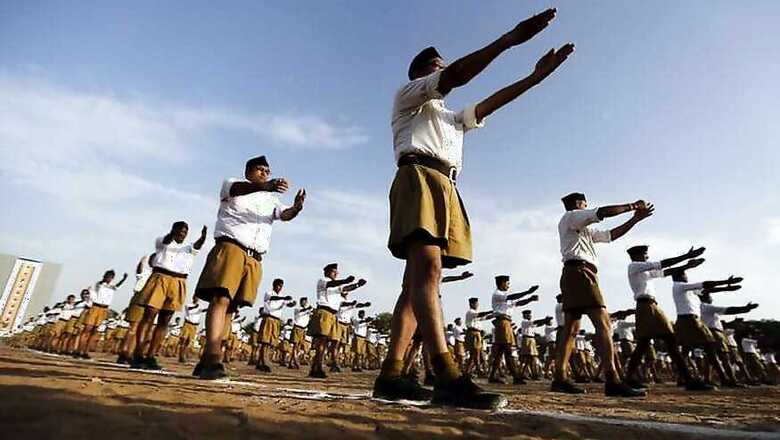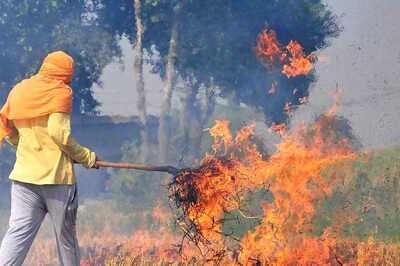
views
New Delhi: The RSS, in its 93-year-old history, has thrown its full weight behind BJP’s general poll campaigns only twice and is unlikely to do so in 2019, a book published on the Sangh claims.
According to ‘RSS: A View to the Inside’, published by Penguin, the organisation backed the BJP’s efforts only in 1977 and 2014.
In the first case, the Sangh feared that Indira Gandhi would “never allow the RSS to officially reform” and in the ’14 general polls RSS put its weight behind Modi-led BJP “alarmed by the prospect of the Congress government imposing restrictions on their activities due to charges of Hindu terrorism”. In both cases an existential crisis seemed to be looming over the Sangh.
“A senior BJP figure told us that on only two occasions has the RSS fully engaged in parliamentary elections: once in 1977 for the Janata Party and then again in 2014 for the BJP. This does not mean that the RSS has not been involved in other elections, but those two elections were the only ones in which it permitted its pracharaks and other high-level officials to take part in the campaigns,” authors Walter K Anderson and Shridhar Damle write.
They add, “In both instances, there was a fear that the RSS’s programme of Hindu unity could suffer a severe setback if the Congress retained power… We were informed that the RSS does not anticipate repeating this level of support for the BJP in the years to come; the RSS expects its affiliates, including the BJP, to train its own workers, and the BJP has already begun training booth-level workers.”
In the first instance, the elections were held right after the ’75 Emergency and RSS leaders, as many among them were imprisoned by Indira Gandhi, fearing that the organisation would suffer serious setback if Indira Gandhi was again voted to power, rallied its forces behind Janata Party.
‘The RSS, in the first instance, feared that the Congress, having banned the organization and imposed the Emergency just two years earlier…would never allow the RSS to officially reform. During this time, the outlawed RSS under Madhukar D Deoras took the unprecedented political step of actively involving itself in the Opposition movement. It organised, for example, a two-month national protest, starting mid-November 1975 and involving some 1,50,000 people, of whom the RSS estimates some 1,00,000 were its own members and sympathizers…the RSS leadership went all out to defeat her.”
Though the government formed by Janata Party alliance was short lived, in the elections both Indira Gandhi and Sanjay Gandhi, considered two most powerful figures in India, lost their seats, and Morarji Desai assumed Prime Minister’s chair.
The next instance was in 2014 when “the RSS feared that another Congress victory, the third in a row, would severely undermine any hope of implementing a Hindutva agenda”.
Modi’s popularity among the swayamsevaks, for his “forceful, decisive and strong” leadership, was another fact for RSS to throw its weight behind him.
Also, “many swayamsevaks also sympathetically viewed him as a victim of a witch-hunt at home and abroad regarding the 2002 Gujarat anti-Muslim riots.”
Therefore, “alarmed by the prospect of the Congress government imposing restrictions on their activities due to charges of Hindu terrorism, the RSS leadership, in the aftermath of the BJP’s loss in the 2009 elections, decided to fully invest in defeating the ruling party in 2014.”
The book also quotes Dattatreya Hosabale, the RSS’s joint general secretary, saying, “We [the RSS] would want the BJP to win all the state elections because only then can significant social, political and cultural changes take place in this country... The 2014 election victory should be seen as the starting point of a long term mission.”



















Comments
0 comment